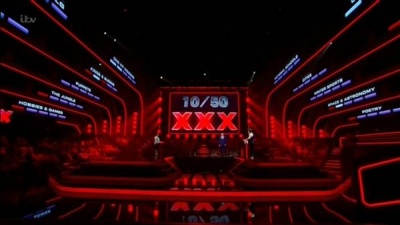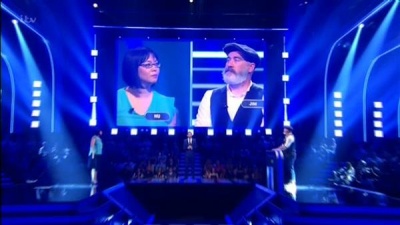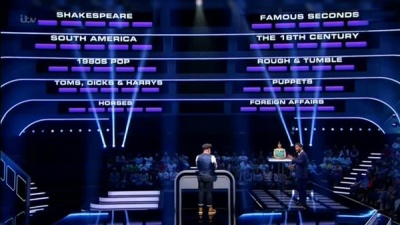500 Questions
Synopsis
The show where three wrong in a row means you're out.
A contestant sees ten categories, each containing five questions.
After picking a category, the contestant is asked a question. They've five seconds to reel off as many answers as they can. A correct answer adds £500 to the bank, failure to give the right answer in five seconds earns a "wrong". Three of these "wrongs" in a row means the player is out of the game.
Facing the contestant is a challenger. They will pick the category if the player gets two "wrongs" in a row. They'll also play in "Battle" questions.
Not all of the questions are straightforward. The "Battle" questions ask player and challenger to give answers that fit onto a list; first error loses the question.
"Triple Threat" questions require the player to give three correct answers in ten seconds. A "Lightning round" consists of ten quick-fire questions from around the board.
Giles Coren, the host, describes these as traps to be avoided. But if you're going to complete the board, you've got to play through all of these little problems.
Giles was somewhere between confident and arrogant. He understood the rules, and allowed us to trust that the show would stay on the rails. But he was a little condescending to some players who gave wrong answers, and without the pantomime villain glint we got from Anne Robinson on The Weakest Link.
We were distracted by some of the production decisions. Contestants were introduced with three facts and a short filmed package, not showing their face until the last moment. They'd been picked more for their on-screen personality than for any quiz ability, so we saw a lot of eliminations.
500 Questions was first shown in the USA, and later in Germany. The ITV episodes were filmed in Germany, before a German audience. There was some careful editing so viewers didn't see the audience during emotional sob-stories. We also got to see the impressive set, an inverted ziggurat of categories culminating in a recess for the gameplay.
Each episode consisted of 50 questions, and built to a natural conclusion. Whoever was in the player's hotseat when the questions ended won all the money banked that day. They were about £12,000 richer, and could come back on the next episode. The challenger was eliminated, sometimes after just standing there for five minutes. Other versions require players to complete 50 questions of their own.
500 Questions was burned off in a week at the end of August, perhaps showing ITV's lack of confidence in the show. By having a clear narrative to each show, this may be the best version of the format. It still made for difficult viewing, and that might be a fault of the format itself.
Catchphrases
"Let's eradicate that wrong!"
"No more questions for you."
Key moments
The show where players combined for one correct answer in 17 questions. We believe this is the greatest display of quiz show error all decade.
Inventor
The credits were very specific.
- Format created by Mark Burnett and Mike Darnell for Warner Horizon Television and UMAG.
- Format licensed by Warner Bros International Television Production Limited.
Trivia
Recorded at MMC Studios in Cologne. A couple of series have been made for Germany. It's been less successful in the US.
To promote the show, ITV's press office promised:
- 500 Questions is an intense battle of brainpower hosted by Giles Coren that will test even the smartest of contestants with a relentless stream of demanding questions. Intellect, strategy and stamina are all essential in order to win. There’s no help, no hints, no multiple-choice and one very simple rule: never get three wrong in a row.





